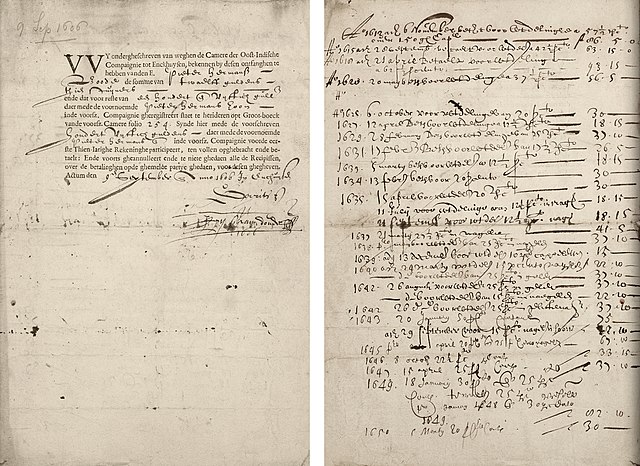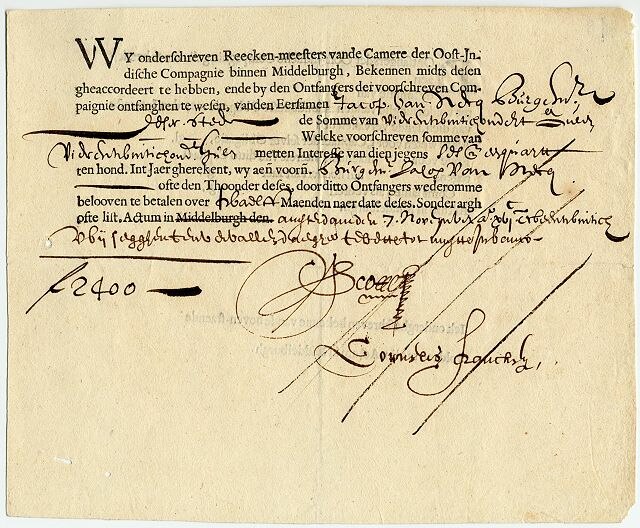A joint-stock company (JSC) is a business entity in which shares of the company's stock can be bought and sold by shareholders. Each shareholder owns company stock in proportion, evidenced by their shares. Shareholders are able to transfer their shares to others without any effects to the continued existence of the company.
The transfer letter from 1288 through which Bishop Peter of Västerås reacquires an eighth of Tiskasjöberg, Kopparberget. The original can be found at Riksarkivet (National Archive) in Stockholm.
One of the oldest known stock certificates, issued by the VOC chamber of Enkhuizen, dated 9 Sep 1606
Corporate law is the body of law governing the rights, relations, and conduct of persons, companies, organizations and businesses. The term refers to the legal practice of law relating to corporations, or to the theory of corporations. Corporate law often describes the law relating to matters which derive directly from the life-cycle of a corporation. It thus encompasses the formation, funding, governance, and death of a corporation.
Hogarthian image of the South Sea Bubble, by Edward Matthew Ward, Tate Gallery
"Jack and the Giant Joint-Stock", a cartoon in Town Talk (1858) satirizing the 'monster' joint-stock economy that came into being after the Joint Stock Companies Act 1844
A bond issued by the Dutch East India Company, dating from 7 November 1623, for the amount of 2,400 florins
Adolf Berle in The Modern Corporation and Private Property argued that the separation of control of companies from the investors who were meant to own them endangered the American economy and led to a mal-distribution of wealth.






